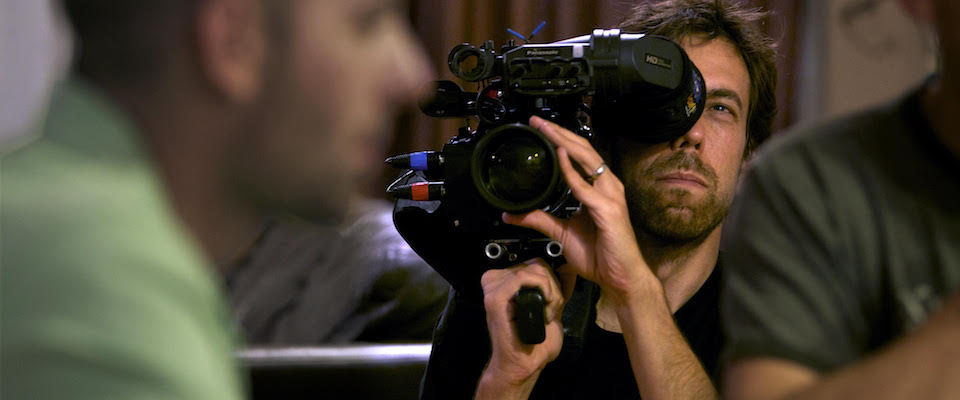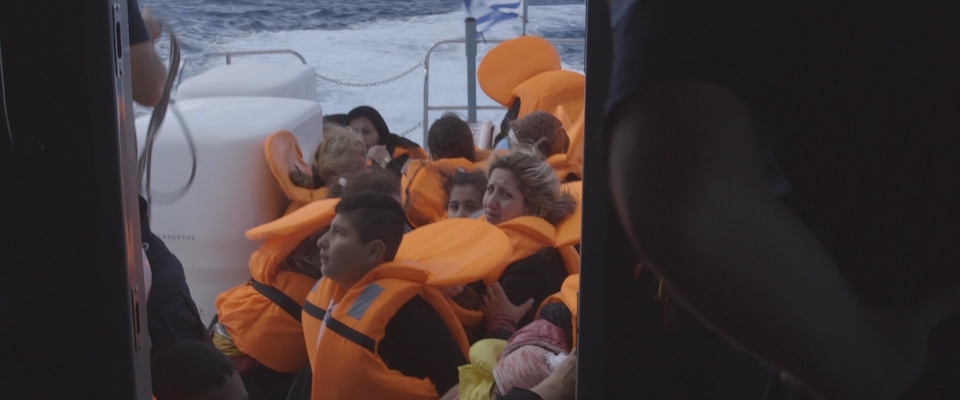Moral complexity often rests at the heart of truly great films, and Dan Krauss has consistently gravitated toward documenting powerful stories on dubious ethical ground, where we see shades of grey, rather than sharp black and white.
His newest film, Extremis, is no different. The Netflix documentary is set in the Intensive Care Unit at Oakland’s Highland Hospital, and spends a lean but harrowing 24 minutes following Dr. Jessica Zitter, as she and her team face the task of helping to determine what steps to take with end-of-life patients.
“Doctors today are capable of sustaining life in ways that were once thought unimaginable, and that’s really ushered in these incredibly difficult and profound questions about what it means to be human,” Krauss says.
Krauss documents patients, often dealing with varying levels of pain and consciousness, kept alive only by medical technology. Questions of life-quality and responsibility for literal life and death loom tragically as patients, families, and Zitter’s team struggle to make the appropriate decision in each case. The film has already been shortlisted for the Academy Award for Best Documentary Short.
Krauss, a lecturer at UC Berkeley’s Graduate School of Journalism where he earned his master’s in 2004, is never one to force an answer to what he deems “unanswerable questions,” a through line that he sees as central to his other films. In his 2004 film, The Death of Kevin Carter, for which Krauss garnered his first Oscar nomination, Pulitzer Prize–winning photojournalist Kevin Carter was lauded for his work in capturing atrocities before he ultimately took his own life. In 2013’s The Kill Team, Krauss observed Army Private Adam Winfield’s internal struggle with his platoon’s deliberate killing of Afghan civilians.
Extremis also passively presents moral complexity, as it primarily follows two opposing approaches to end-of-life care.
“I believe that moral complexity comes from people with good ambitions who have different viewpoints about how to achieve a common goal,” Krauss says. “And in this case, I was very deliberate in representing two families that were approaching the same challenge with different foundations in their faith and different foundations in their family dynamic that led them to make different choices.”
Ultimately the film builds a case for humanization rather than moralization.
“The reason it’s so fascinating and so beautiful is that there is no wrong choice when you’re faced with an impossible question,” Krauss says. “There’s only the choice with which you can live as a decision maker.”
Investigating complicated premises is something of a tradition in the J-school’s documentary department.
Krauss studied under greats such as North Gate Chair in Journalism Jon Else, whose best-known Oscar-nominated documentary, The Day After Trinity, examined the grave reverberations of the first successfully tested atomic bomb. Krauss demands the same dedication to the difficult from his own J-school students. “I always say to my students, no simple stories. We don’t do simple stories,” says Krauss.
The motto has paid off; among the nine other films joining Extremis on the Academy’s shortlist is 4.1 Miles, a J-school thesis film made by Krauss’s own student, Daphne Matziaraki. Krauss describes the work as “masterful.” He deems it and honor to share the shortlist with Matziaraki, for whom he served as an advisor on the film. He also sees it as an explicit indication of the caliber of work that comes out of J-school filmmakers.
“They’re just consistently raising the bar in terms of their choice of story matter, the way they choose to tell those stories, the risks they take artistically [and] journalistically to bring back that material—it’s astonishing,” Krauss says. “Students like Daphne and a lot of her cohorts push me to do better in my own work.”
Krauss’s own Oscar nomination for The Death of Kevin Carter was also his J-school thesis film. But that early nomination has done little to dull the thrill of Extremis’s shortlist recognition.
“It’s no less exciting,” Krauss says. “Any time you create work that connects with people, it’s utterly thrilling. And when you have the kind of recognition that comes with being on the shortlist, it’s the greatest affirmation that the film has connected.”
The official Oscar nominees will not be announced until late January, but Krauss is not waiting around on his laurels. He is currently working on two feature documentaries, and preparing to shoot his own scripted adaptation of The Kill Team, with stars Nat Wolff and Alexander Skarsgard leading on screen.
In making the transition to non-documentary film, little will shift in Krauss’s thematic concerns. His camera still searches to capture the intangible traces of what truly defines us as human beings.
“It sounds lofty, but in the work that I’ve done over my career, the characters who are facing those questions that have to do with their core humanity are the human beings I am most drawn to explore and try to understand,” says Krauss. “The challenge of depicting that psychological drama is something that I relish as a filmmaker.”





















